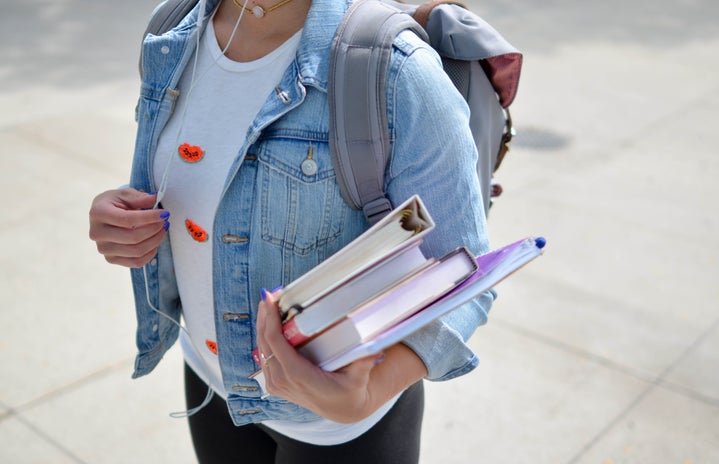This past April, I turned 18. Among many other things, turning 18 meant I could register to vote.
Though it felt like turning 18 would magically turn me into a full-functioning adult, it doesn’t — and it didn’t. Being 18 feels like a year-long free trial of adulthood more than anything — but perhaps the most tangible indicator of “true” adulthood is the ability to vote. I know it’s election season because every time I try to watch a YouTube video, a political ad with dramatic voice-overs of politicians precedes it. Between the slander on political ads and people making sure I’m registered to vote while on my walk to class, I have not been able to forget that it’s election season.
Personally, ever since President Trump got elected, I have found it difficult and exhausting to keep up with current events. Politics and the news generally feel distant and beyond my control. It feels like the people in power — mostly white, male and rich — will always be in power. It feels as if the government will always be corrupt and full of people who chase their own self-interests over the well-being of others. It feels like we’re living through to the end of the world and everything is falling apart. From the Kavanaugh hearings to the incessant news cycle that never seems to have positive news, people are undoubtedly frustrated at the lack of action that has taken place. When people are trying to fundamentally change the way you live your life and how you live it, you have no choice but to get involved. This is why young people are getting more involved in politics.
There’s one thing, though: My generation is notorious for having the lowest voter turnout. The extensive push to get registered to vote has made it clear that young people have some of the worst voter turnouts in history. There’s a stigma around being young and involved in politics. Younger people are sometimes viewed as having uninformed, disillusioned, naive opinions and ideals. I don’t believe that there’s anything wrong in believing that the current state of our nation can change. It’s not a fault of my age that I believe in justice and equality for underrepresented groups. It’s not naive of me to want to live in a country where women have the ability to choose what they want to do with their bodies. It’s not naive of me to want to live in a country where my classmates aren’t afraid to go to school because of the possibility of a school shooting.
Whether you lean right or left, I think we can all agree that the upcoming election will be a huge turning point in the political climate of America. An exciting aspect of this election is that more women and traditionally underrepresented groups are running than ever before. The voices of those who have been ignored and suppressed have the chance to take charge in a political position. A quick rundown of the upcoming election: This year’s congressional election (a.k.a. midterms a.k.a. the middle of the president’s term) is important. Congress is split up into two: the House of Representatives and the Senate. In the House of Representatives, there are 435 members, and states with larger populations have more seats. The Senate delegates two representatives per state. Shout-out to the Founding Fathers, yeah? This midterm election is the Democratic Party’s opportunity to gain control of Congress, but if Republicans keep both houses, then the next two years will proceed the same way as it has now. The officials elected this season will make key decisions regarding healthcare, gun rights and LGBTQ rights.
The decisions made now will affect the rest of my life and yours. After months of being pushed to register to vote, the time has come to take action. Election Day is November 6. For University of Florida students, early voting takes place until November 3 in the Reitz Student Union. This is the time in which the balance of power of our nation is in our hands. We have the ability to change the way things are.
Collegiettes: You know what to do. Get out there and collect your “I voted” stickers.


